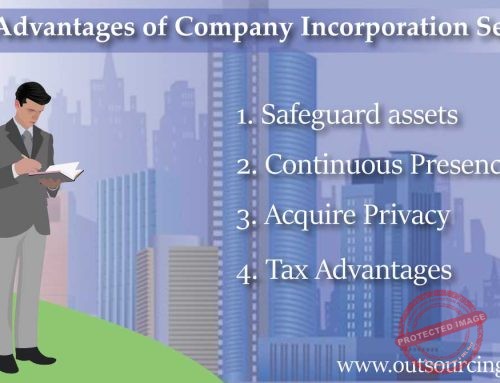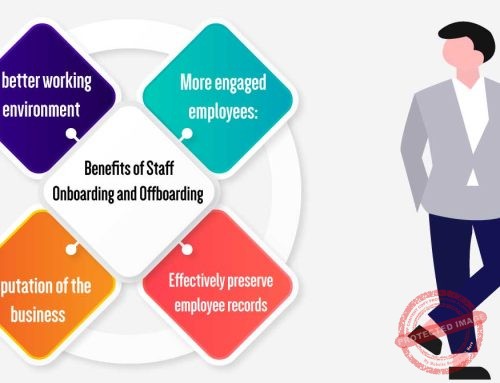A trade license plays a pivotal role in supporting and elevating a growing business. Firstly, it ensures that the company operates within the legal and regulatory confines of a jurisdiction, lending legitimacy and fostering trust among stakeholders, partners, and customers.
This trust may be crucial in developing a solid brand image, which is invaluable for new firms. Furthermore, obtaining a trade license may improve a company’s chances because many companies and governments prefer or require contact with licensed businesses.
Furthermore, a trade license can provide clarity on business rights, paving the way for smoother operations without legal hindrances. In some contexts, it can also be a prerequisite for accessing certain markets, grants, or financing opportunities.
The current situation raises a serious question, “How Does a Trade License Save Your Business from Legal Trouble?”
A trade license provides a business with legal authorization to operate within a jurisdiction, ensuring compliance with local regulations. Possessing one minimizes the risk of legal infractions, penalties, and disputes, thereby safeguarding the company from potential legal issues.
Let’s start having more conversations right away!
How Does a Trade License Save Your Business from Legal Trouble?
A trade license acts as a safeguard against potential legal challenges for a business. By ensuring that a company operates within the defined legal parameters of a given jurisdiction, it minimizes the risk of infringements, violations, or non-compliance with local regulations.
Moreover, possessing a valid trade license signifies that the business has met specific standards, undergone necessary inspections, or fulfilled other mandated criteria, effectively reducing the chances of facing penalties, fines, or legal actions.
Furthermore, in the event of disputes or claims, having a license can serve as evidence of the business’s commitment to legal compliance. A trade license not only establishes a company’s legitimacy but offers a layer of legal protection and potential disruptions in business operations.
7 Benefits of Having a Trade License
Having a trade license offers a multitude of benefits for a business:
1. Legal Compliance
A trade license ensures that a business operates within the stipulated rules and regulations of its jurisdiction, preventing potential legal infractions and resultant penalties.
2. Enhanced Credibility
Having a valid trade license boosts the legitimacy and trustworthiness of a business in the eyes of customers, partners, and stakeholders.
3. Access to Markets
Certain markets, industries, or business areas might require specific licenses to enter, and having a business license can facilitate easier access.
4. Business Financing
Financial institutions and investors often view licensed businesses as more credible, potentially easing the process of securing loans or attracting investment.
5. Protection Against Disputes
In the event of business disputes or challenges, a trade license can serve as evidence of the business’s commitment to legal and ethical operations.
6. Operational Clarity
A trade license can clearly define the scope and nature of the business activities allowed, offering clarity and direction in business operations.
7. Competitive Advantage
In a competitive marketplace, a trade license can differentiate a business as compliant and trustworthy, giving it an edge over unlicensed competitors.
Right Trade License for Your Business Type
Choosing the right trade license for your business type is crucial to ensure compliance, facilitate operations, and avoid potential legal complications. The appropriate license will often depend on the nature of your business, its location, and also the specific regulatory environment in that region.
Here’s a general guideline on how to determine the right trade license for different business types:
1. Nature of Business
-
- Retail and Wholesale
- Manufacturing
- Services
Business Size and Structure
-
- Sole Proprietorships
- Partnerships and Corporations
3. Location
4. Environmental Impact
5. Health and Safety Concerns:
6. Regulated Industries
7. E-commerce and Online Businesses
8. International Trade
9. Event Management or Entertainment
10. Real Estate and Construction
Why is a Trade License Essential for Expanding a Business Overseas?
A trade license is pivotal for businesses seeking to expand overseas because it establishes their legitimacy in foreign markets. Such a license demonstrates adherence to international and local regulations, thereby building trust with overseas partners, stakeholders, and customers.
Additionally, it facilitates smoother entry into new markets by ensuring compliance with local business norms, reducing potential legal complications.
The presence of a valid license also often becomes a prerequisite for various administrative processes, from renting spaces to hiring local talent or even accessing certain financial services.
Lastly, a trade license acts as a foundational document that vouches for a business’s credibility and commitment to lawful operations in an international setting.
Is Your Business at Risk Without a Trade License?
Absolutely. Without a trade license, a business exposes itself to significant risks. Operating without the appropriate license can lead to legal repercussions, including hefty fines, penalties, or even forced shutdowns.
Such non-compliance can erode the trust and reputation the business has with its customers, stakeholders, and partners.
Additionally, the absence of a business license can hinder opportunities for business financing, as many financial institutions view licenses as a sign of legitimacy and reliability.
Without a trade license, a business jeopardizes its legal standing, reputation, and potential growth opportunities.
Documents Required for Trade License Application
The documents required for a trade license application can vary based on the jurisdiction, region, and nature of the business. However, there’s a general list of documents that are commonly required for applying for a trade license:
1. Application Form
2. Proof of Business Address
- Rental agreement (if the business location is rented)
- Sale deed (if the business location is owned)Utility bill as proof of business address
3. Identity Proof of the Business Owner/Proprietor/Partners/Directors
-
- Passport
- Driving license
- Voter’s ID
- Any other government-issued ID
4. Passport-sized Photographs
-
- Proof of Legal Status of the Business
- Sole proprietorship declaration
- Partnership deed (for partnerships)
- Articles of Association and Memorandum of Association
- NOC (No Objection Certificate)
- Details of Employees
- Health and Safety Certificates
- Environmental Clearances
- Business Plan or Nature of Business Declaration
- Tax Returns or Financial Statements
- Other Special Licenses
- Fee Receipt
Right Solutions to Simplify the Trade License Process
Streamlining the trade license process can be immensely beneficial for both businesses and regulatory authorities. Adopting technology-driven solutions, such as online application portals, can make the process user-friendly and efficient.
Centralized databases can help in tracking applications, renewals, and verifications. Providing clear guidelines, templates, and checklists can demystify the process for applicants, as much as reducing errors and iterations.
Additionally, integrating feedback mechanisms allows authorities to continuously refine and improve the process. Offering training sessions or informational workshops can further guide businesses on best practices and compliance.
By employing a combination of technology, clear communication, and continuous improvement, the business license process can be simplified, making it more accessible and also efficient for all stakeholders.
Cost of Obtaining a Trade License
The cost of obtaining a trade license can vary significantly depending on the country, region, nature of the business, and other factors. Here’s a hypothetical table representing the costs for various business types in a generic setting:
| Business Type | Cost (in USD) |
| Retail | $100 – $500 |
| Wholesale | $150 – $600 |
| Manufacturing | $200 – $1,000 |
| Service-based | $100 – $500 |
| Food & Hospitality | $150 – $700 |
| Real Estate | $300 – $800 |
| Import/Export | $250 – $1,200 |
Why Do Trade License Requirements Vary by Region?
Trade license requirements vary by region due to differences in local laws, economic priorities, cultural norms, and governance structures.
Additionally, each region has its unique set of challenges and needs, leading to tailored regulations to ensure consumer protection, promote specific industries, or maintain public health and safety.
Moreover, geographical and environmental factors can also influence regulations, as can the historical context of business operations in a particular area. Economic strategies might prioritize certain sectors, leading to differentiated licensing requirements to attract investment.
Furthermore, regional governments may adjust requirements based on feedback from local businesses and residents, aiming to strike a balance between fostering economic growth and ensuring public well-being.
Differ Between Trade License Vs Business License
Here’s a concise table differentiating between a trade license and a business license:
Parameter
Trade License
Business License
Purpose
Allows businesses to conduct a specific trade or industrial activity in a region.
General permission to operate a business within a jurisdiction.
Scope
Typically narrower, specific to a type of activity or trade
Broader, often covering multiple business activities under one entity
Issuing Authority
Often local municipal bodies or specific regulatory authorities for trades.
City, county, or state government, depending on the jurisdiction
Duration
Might be shorter and require frequent renewals.
Duration can vary; some might be perpetual with periodic reporting.
Regulations
Focus on compliance related to the specific trade, like health standards to eateries.
Generally ensure that businesses comply with local, state, or federal laws.
Why Should You Consider Trade License Management?
Trade license management is crucial for businesses to ensure continuous, compliant, and hassle-free operations. Proper management of trade licenses ensures that a business remains legally compliant, safeguarding it from penalties, fines, or potential shutdowns.
Moreover, a well-managed license portfolio enhances a company’s reputation, showcasing its commitment to legal and ethical practices, and building trust with customers, partners, and stakeholders.
Furthermore, systematic license management can identify overlaps or gaps, optimize costs, and ensure efficient resource allocation. Considering business license management is essential for risk mitigation, operational efficiency, and upholding a business’s credibility in the market.
Why Are Some Businesses Exempt from Trade Licenses?
Certain businesses are exempt from trade licenses due to a variety of reasons rooted in public policy, historical precedents, or practical considerations.
Regulatory authorities might exempt small or home-based businesses to promote entrepreneurship and reduce the administrative burden on budding entrepreneurs.
Additionally, certain professions or industries that are regulated by specialized bodies or certifications may not require a separate business license, as they already adhere to stringent professional standards.
Historical or cultural practices might also play a role, with certain trades being traditionally exempt due to their age-old presence in a community.
Lastly, exemptions might be provided to promote specific sectors, especially those that are seen as beneficial for economic development, social welfare, or public interest. While exemptions exist, it’s essential for businesses to verify their status to avoid potential legal complications.
5 Tips on Obtaining a Trade License
Certainly! Here are some tips to help you navigate the process of obtaining a trade license:
1. Research Local Requirements
Always start by understanding the specific licensing requirements for your location and business type, as these can vary significantly between jurisdictions.
2. Understand Your Business Category
Ensure clarity on your business’s category (e.g., retail, service, manufacturing) because licensing stipulations differ based on the nature of the business.
3. Seek Legal Counsel
To navigate the intricacies of licensing, consider consulting with a business attorney or advisor who’s familiar with local regulations. They can help also ensure you don’t miss any vital steps.
4. Gather and Organize Documentation
Be proactive in collecting all necessary documents, like identity proofs, business address proofs, and another specific paperwork. But, having them ready can expedite the application process.
5. Stay Updated on Renewals
Trade licenses have expiration dates. Mark your calendar for renewal deadlines to prevent any operational disruptions or legal consequences from lapsed licenses.
Conclusion
A trade license is a fundamental component for the legitimate operation of businesses in many jurisdictions worldwide. It ensures that businesses adhere to established standards, rules, and also guidelines, promoting a fair and competitive marketplace.
However, beyond mere compliance, obtaining and managing a trade license reflects a business’s commitment to ethical practices, enhancing its reputation among customers, stakeholders, and competitors.
While the process might seem intricate, with proper research, and proactive management, securing a business license can be straightforward. It remains an invaluable tool in building trust, ensuring continuity, and fostering a culture of accountability in the world of business.
FAQ
How long does it take to obtain a trade license?
The duration varies based on the jurisdiction, business type, and completeness of the provided documentation. While some licenses can be obtained in a matter of days, others may take weeks or even months.
Is a trade license the same as a business license?
Not necessarily. While both are permits to conduct business, a business license is often specific to certain types of trades or activities. A business license, on the other hand, is a more general permit to operate a business within a jurisdiction.
How do I know if my business needs a trade license?
It’s best to consult with local regulatory authorities or seek legal counsel. As much as requirements vary based on the jurisdiction and the nature of the business.






